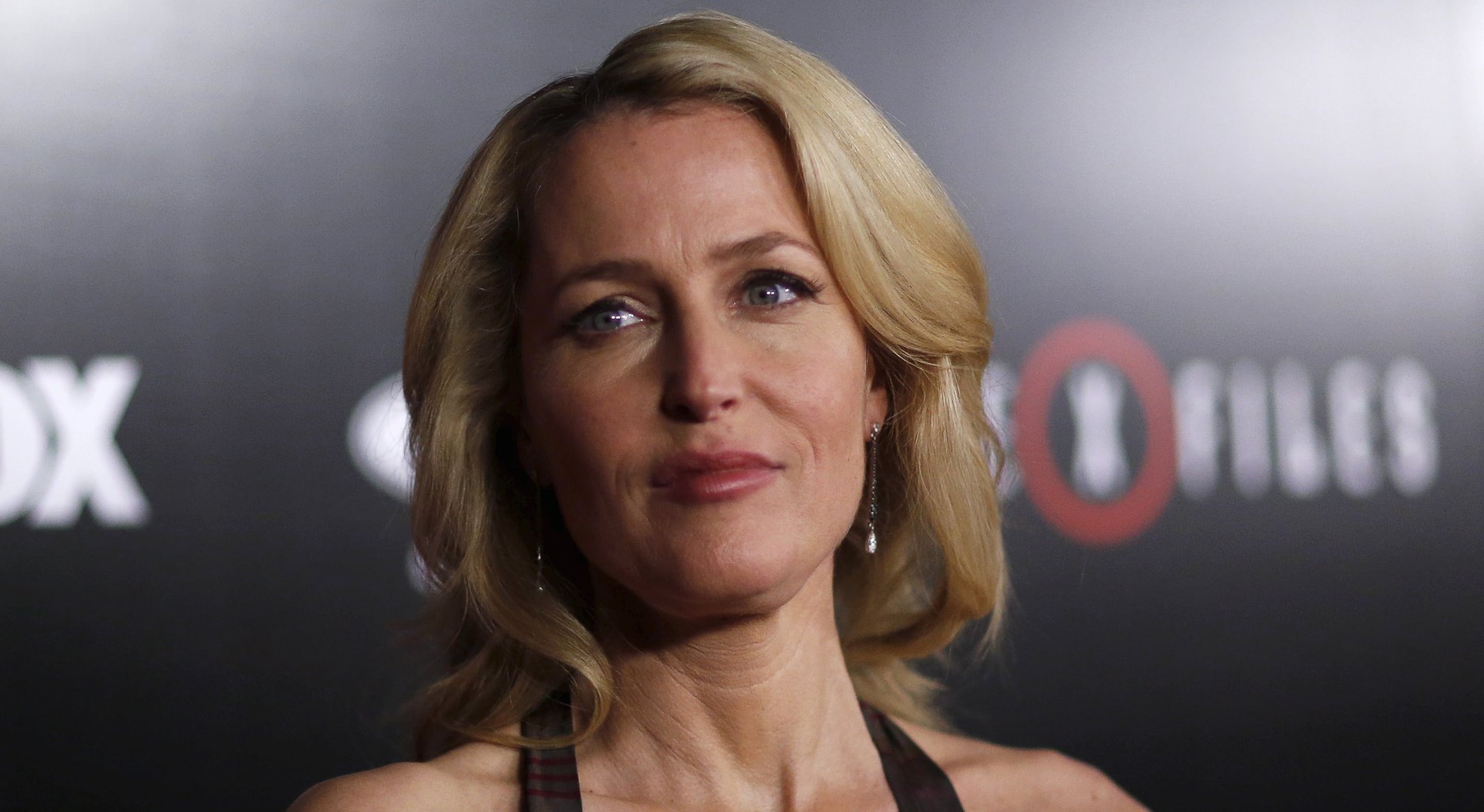A female James Bond is exactly what the franchise needs right now
Whether you’re a man or a woman, James Bond makes being a superspy look like a pretty good gig. Agent 007 wears impeccable suits, drives cool cars, takes out the bad guys and sleeps with an endless parade of gorgeous partners. It’s no wonder actress Gillian Anderson would like to try the role on for size. Who wouldn’t want to be suave, brutal and sexily angst-ridden?


Whether you’re a man or a woman, James Bond makes being a superspy look like a pretty good gig. Agent 007 wears impeccable suits, drives cool cars, takes out the bad guys and sleeps with an endless parade of gorgeous partners. It’s no wonder actress Gillian Anderson would like to try the role on for size. Who wouldn’t want to be suave, brutal and sexily angst-ridden?
Of course, there are naysayers. James Bond, the skeptics say, is the manliest of men. Take that away, and masculinity everywhere will dissolve into a feminized puddle, like in The Thing, but sadder and with a worse box office return.
But speaking as a man on the issue of man things, if James Bond became Jane Bond, I’m pretty sure our gender would get on board. There is, after all, a fairly long history of manly enthusiasm for action films with women heroes. Ripley from Alien (1979) and Sarah Connor from Terminator (1984) aren’t quite as old as James Bond, but they’re both nearly as iconic. Surely they (and Mad Max‘s Imperator Furiosa, too) come across as much more convincingly badass than Roger Moore. If you want to stick to superspy assassins, there’s The Bride from Kill Bill. Uma Thurman could certainly rock a tuxedo.
In her classic book on horror movies, Men, Women and Chainsaws, Carol Clover argues that men often actually identify more strongly with empowerment narratives that feature female characters. Clover points to exploitation slasher films, which inspired both Ripley and Sarah Connor.
In these kinds of films, Clover argues, the woman is initially portrayed as being in danger, a narrative in tune with the cultural stereotypes about women as weak, disempowered, and endangered. Think of Sarah Connor in the first Terminator film, Clarice in Silence of the Lambs, or of Lisbeth Salander sexually assaulted in Girl With the Dragon Tattoo.
But then, Clover argues, in the second half of these films, the tables are turned. Suddenly, the weak, vulnerable woman seizes the knife/axe/improbably large gun, and overcomes the alien/android/serial killer/whoever. The empowerment fantasy is more intense and more complete because it starts as a disempowerment fantasy.
Women are allowed on screen to be more vulnerable than men. For example, there’s a scene in Kill Bill where the Bride is reduced to wailing and begging as Bill shoots her in the head. She’s totally bereft and defeated. But her emotional loss and the totality of her disempowerment only makes her more fearsome when she wakes from her coma and begins slaughtering her way towards vengeance. The further down you are, the more satisfying it is when you slice up 200 ninjas.
James Bond, on the other hand, never loses his cool. Even when he’s having his genitals tortured in Casino Royale, he still laughs defiantly. This means the empowerment fantasy always lacks a certain dynamism. Bond starts at the top and stays at the top, running through the same Bond formula as ever, year after year, always debonnaire and unflappable, always—kind of dull. Maybe there’s a Bond scene as gritty, heart-breaking, and ultimately triumphant as the scene at the end of Terminator II with Linda Hamilton cocking her shotgun with her one good arm and driving the evil terminator towards the molten pit. But I sure don’t remember it.
In keeping with old-fashioned standards of masculinity, guys are supposed to always remain in control. But (big reveal!) the vast majority of men, the vast majority of the time, are not. We feel disempowered, overwhelmed, endangered—all the emotions that the rules of cinema don’t allow Bond to display.
But women action heroes have access to a wider palate of emotions. Although women onscreen are often given smaller, more stereotypical, less nuanced roles than men, in action films, they can shine. When they’re given lead roles, they often have more latitude, range, and development than men would.
It seems unlikely that the Bond executives would tinker with their tried and true—not to mention lucrative—formula. The films are consistent money-earners, and last year’s bloated, tedious Spectre showed just how unimaginative and hidebound the creative forces behind the franchise are.
But if they did choose Gillian Anderson, film history suggests we might finally get a Bond who is vulnerable, scrappy, and determined, with harder-won victories. That’s way more cool. Jane Bond would give the franchise a chance to create a better empowerment fantasy—for people of every gender.